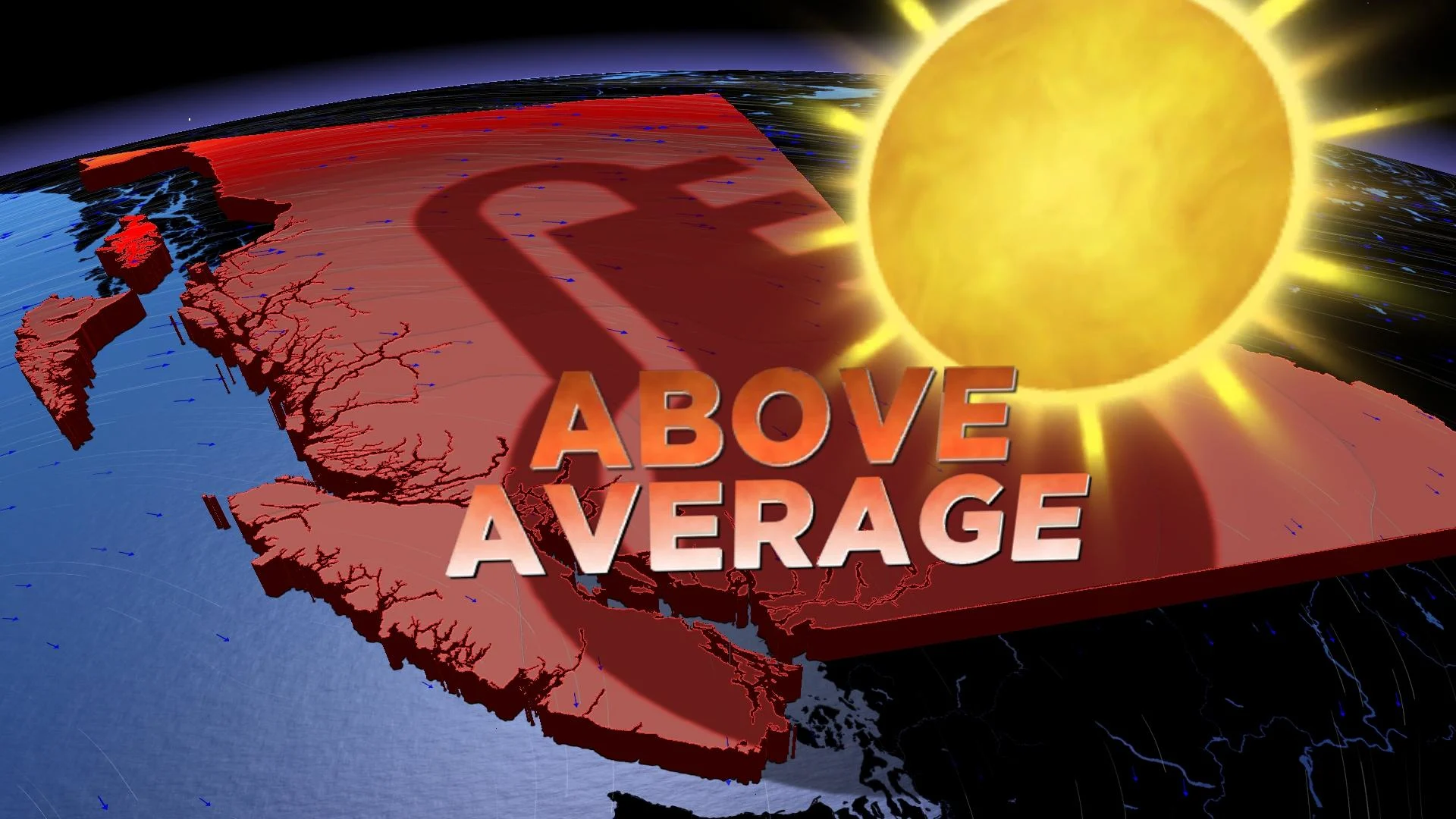
Summer heat will soon get cranked in Vancouver and southern B.C.
A big ridge of high pressure will continue to build this upcoming weekend across British Columbia, sending temperatures into the 30s and humidex values near or above 40 for some areas
The summer sizzle is coming, B.C.
A much warmer and drier pattern is ahead this month in B.C., with temperatures expected to reach the mid-20s to lower 30s for the South Coast region.
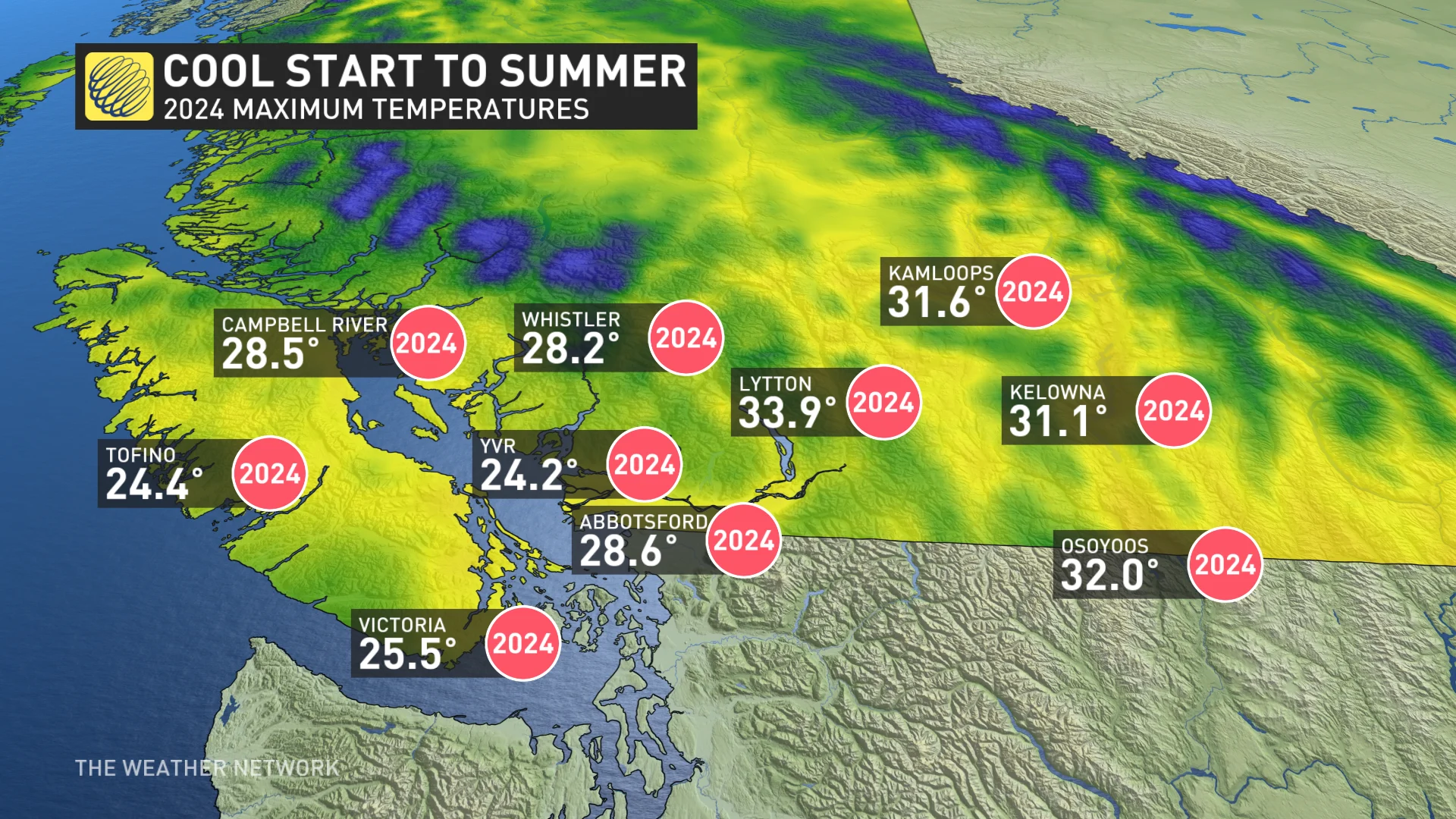
Across the southern Interior, temperatures will reach at least the low- to mid-30s this weekend and through early next week.
RELATED: Scorching July heat, first 40°C day makes its way to Canada
The hot temperatures will result in an increasing risk of heat stroke and exhaustion for the vulnerable, particularly along the South Coast where most people don't have air conditioners. The dry conditions, meanwhile, will certainly elevate the risk for wildfires.
Heat, drier pattern emerges
A strong ridge of high pressure is developing in the northwestern U.S., and will scrape the South Coast before peaking Saturday and Sunday.
Temperatures will reach the mid-20s along the coast and up to the low 30s in the Fraser Valley.
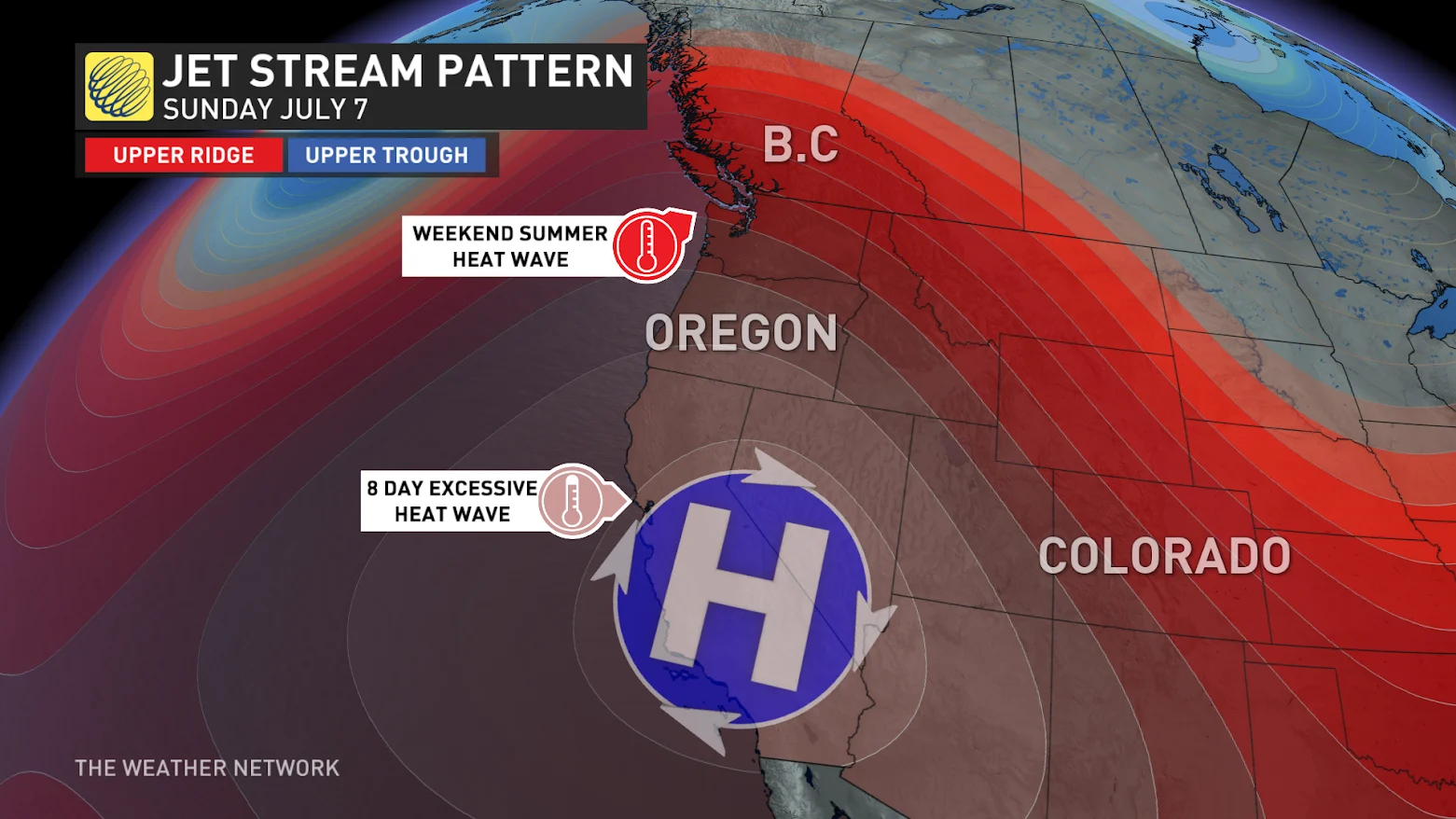
Vancouver International Airport (YVR) has yet to hit 25°C this year and it's getting seasonably late.
There will be a chance to achieve this feat Friday, but better odds on Saturday as the high pressure peaks.
Humidity will be on the rise, too, feeling like the 30s all the way to the coast, and as high as the mid-30s farther inland.
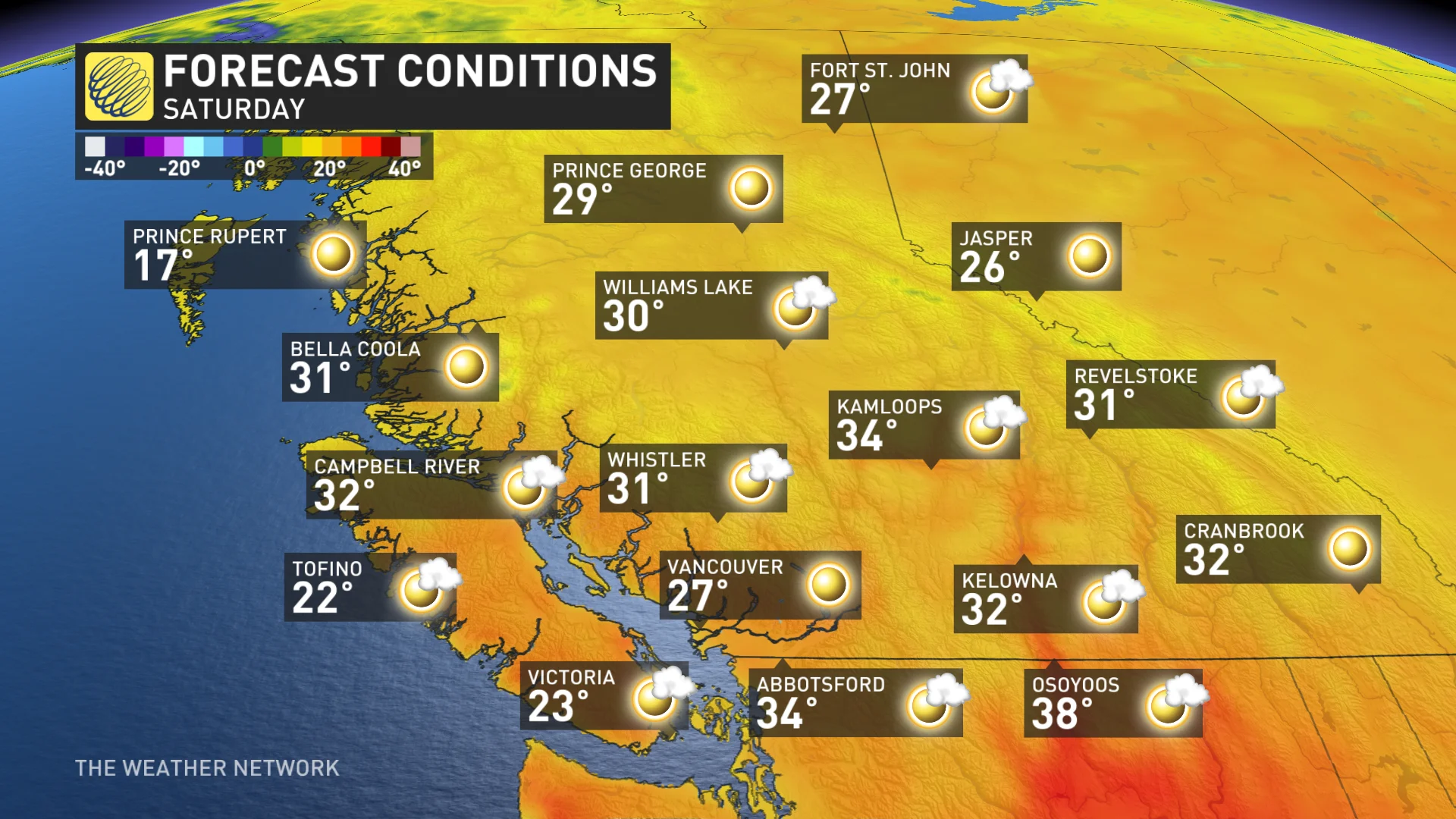
MUST READ: July outlook: Will summer’s sputtering start turn around this month?
The heat could make a run at getting Victoria’s first 30°C of the year.
The danger is that the full sun and the building warmth will inevitably raise the wildfire danger and the risk of heat stroke and exhaustion, particularly for the vulnerable on the South Coast, where air conditioners aren't common. So, be mindful if you plan to take advantage in the outdoors.
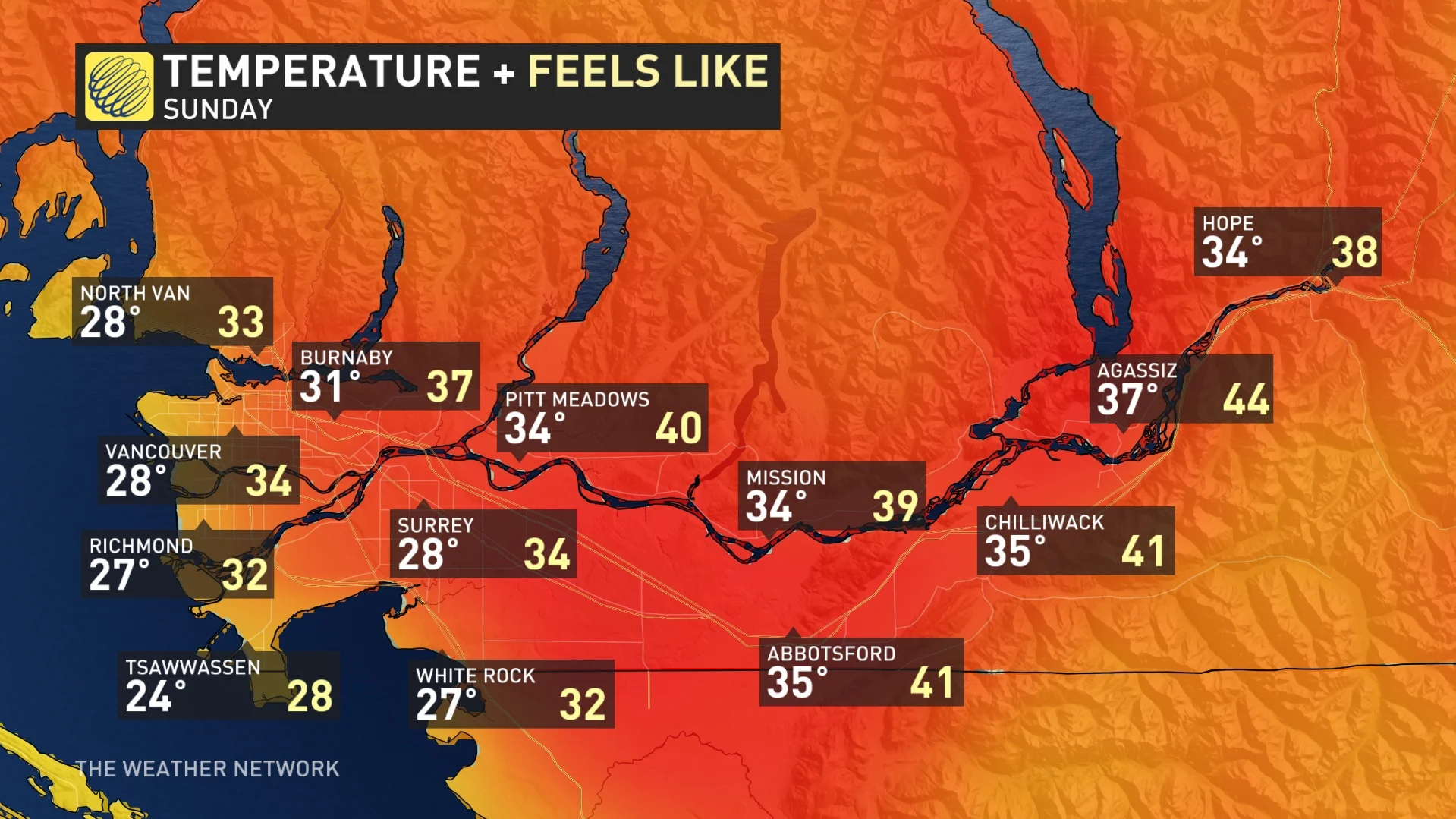
A heat dome in the U.S. West will offer an eight-day heat wave into next week. Death Valley, Calif., is poised to tackle its all-time heat record by Monday.
Temperatures will then trend back to seasonal next week, first for the coastal areas and then spreading eastward into the province.
RELATED: Will Death Valley flirt with a world record next week? It's on the table
Increased potential for heat-related illnesses
Folks who are highly susceptible to the heat include those in homes without air conditioning, elderly people, unhoused people, outdoor workers, those living with chronic health conditions, and folks taking certain medications.
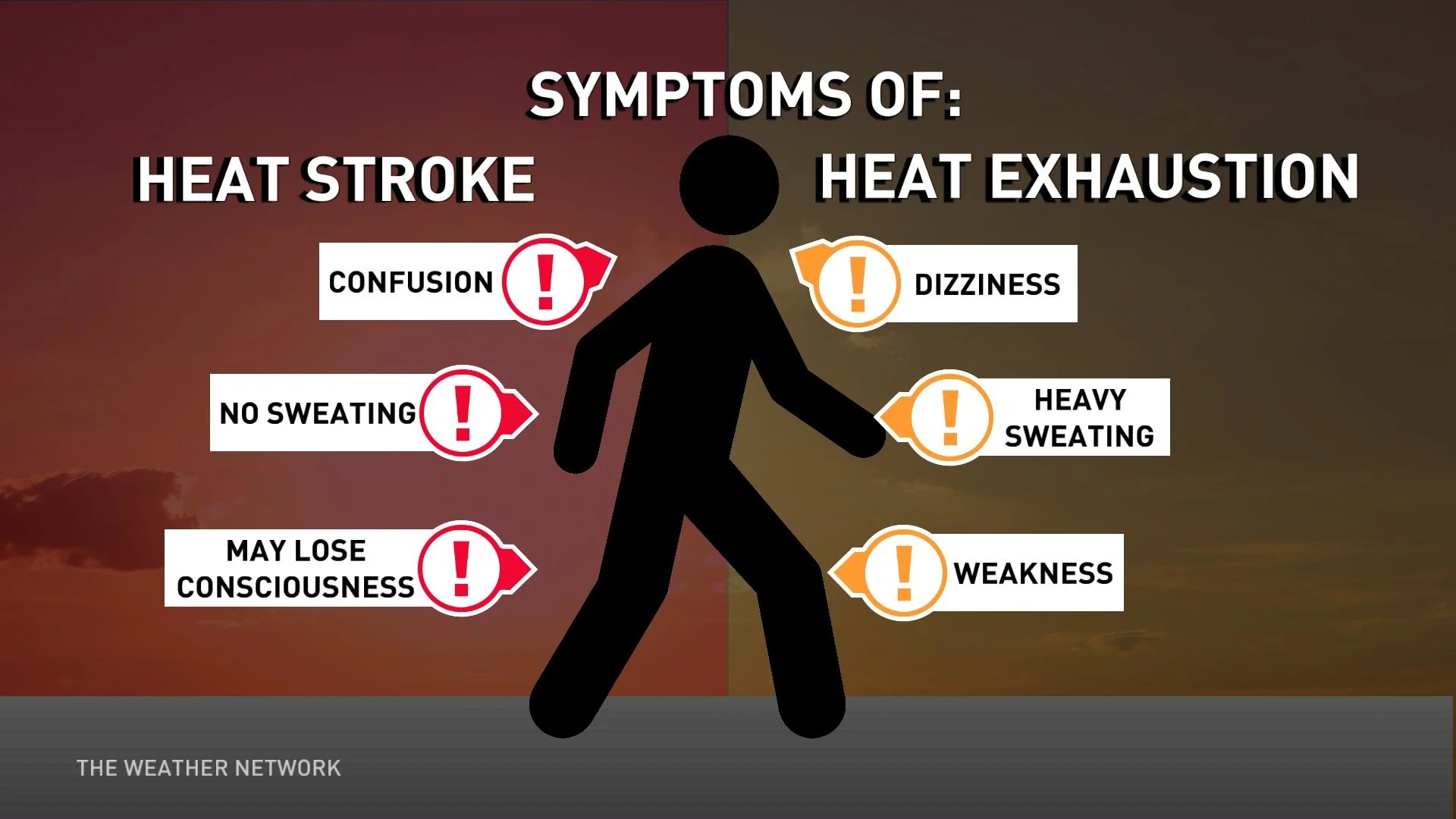
Check on vulnerable friends, family, and neighbours over the coming week. Stay alert for the signs of heat-related illnesses.
MUST SEE: Heat emergencies: How to spot them and what to do
Heat exhaustion occurs when a person’s body temperature climbs too high and they struggle to cool off. Symptoms of heat exhaustion include dizziness, excessive sweating, and weakness. Developing heat exhaustion is a serious sign that your body is in distress and you need to find a way to cool off immediately.
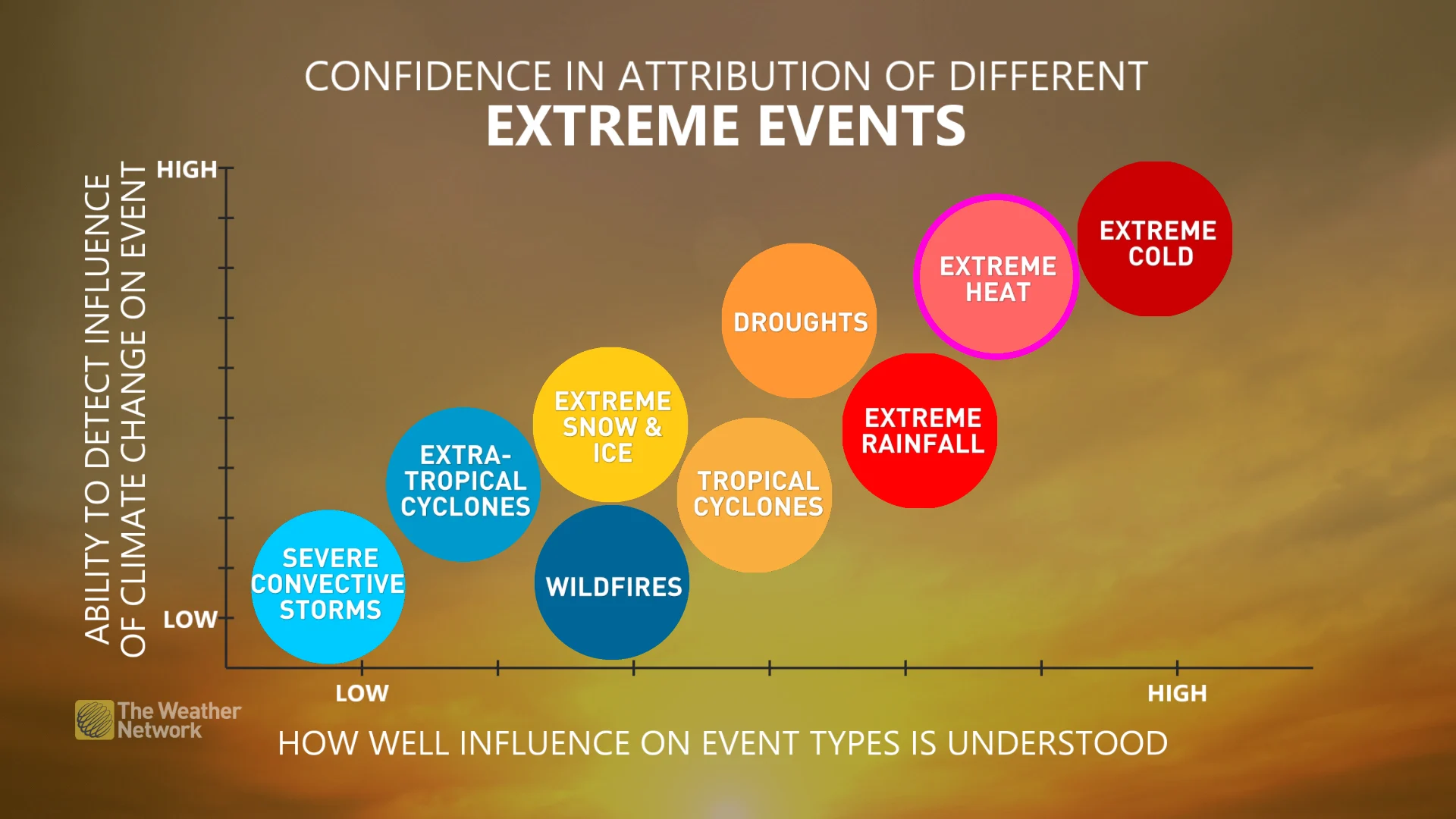
Heat stroke is a life-threatening medical emergency that occurs when a person’s body temperature is so high that their vital systems begin to shut down.
During heat stroke, sweat production stops and body temperatures soar very quickly. A victim suffering from heat stroke may exhibit confusion and loss of consciousness. Heat stroke can be fatal if not treated immediately.
Stay tuned to The Weather Network for the latest forecast updates for B.C.
